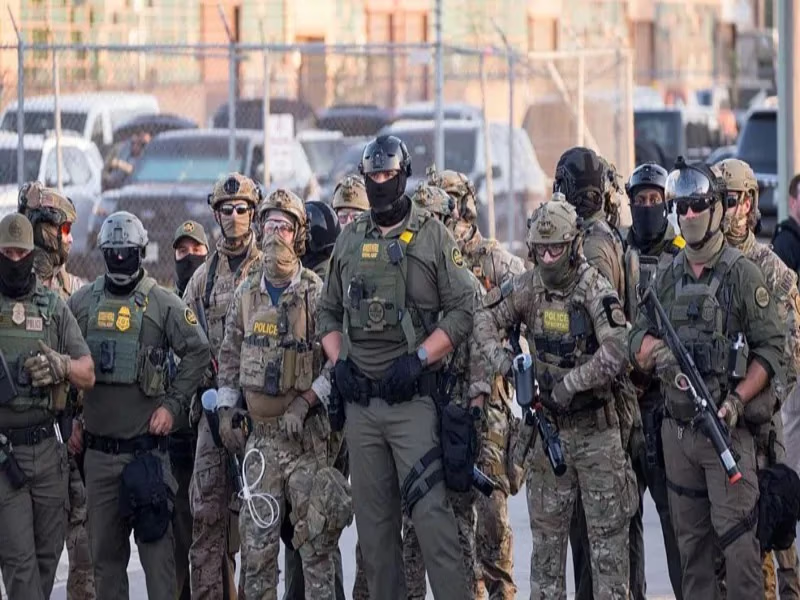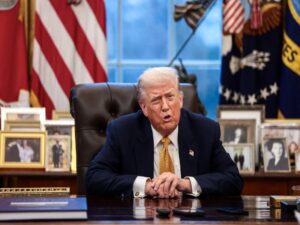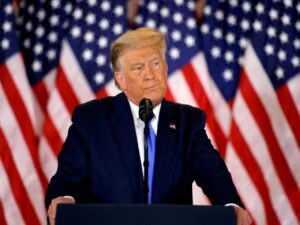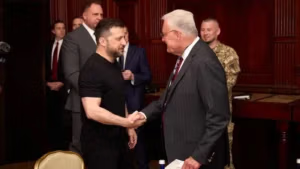President Donald Trump has sanctioned the deployment of 300 National Guard soldiers in Chicago to deal with what he believes is out-of-control crime.
The action was hours after immigration officers reported that they confronted demonstrators in the Democrat-controlled city, and shot an armed woman after she and others crashed their vehicles into law enforcement vehicles.
The plan to deploy troops has been criticised for weeks by state and local leaders, who labelled it as an abuse of power. Illinois Governor JB Pritzker claimed that Trump was “attempting to manufacture a crisis.”
The news was received when a federal judge in Portland, Oregon, a liberal city, temporarily denied the Trump administration permission to have 200 troops.
Judge Karin Immergut described statements by Trump about conditions in Portland as “untethered to the facts,” and stated the move violated the Constitution.
She reported that the deployment of the military to calm unrest without the permission of the state of Oregon jeopardized the sovereignty of that state and others, and she also argued that it increased concerns in the city and led to more protests.
Immergut upheld that the justifications of administration of the deployment are “risk blurring the line between civil and military federal power – to the detriment of this nation.”
Although it is not clear that troops have been deployed in Chicago, any such deployment would be subject to legal challenges.
The city is the most recent, most of them governed by Democrats, and has been the target of a controversial involvement of troops, along with Washington, Los Angeles, Memphis, and Portland.
The deployments have also raised legal and constitutional challenges, with National Guard forces generally being activated by the governor of a state and the existence of 100-year-old statutes that restrict the ability of the government to use the military to address domestic issues.
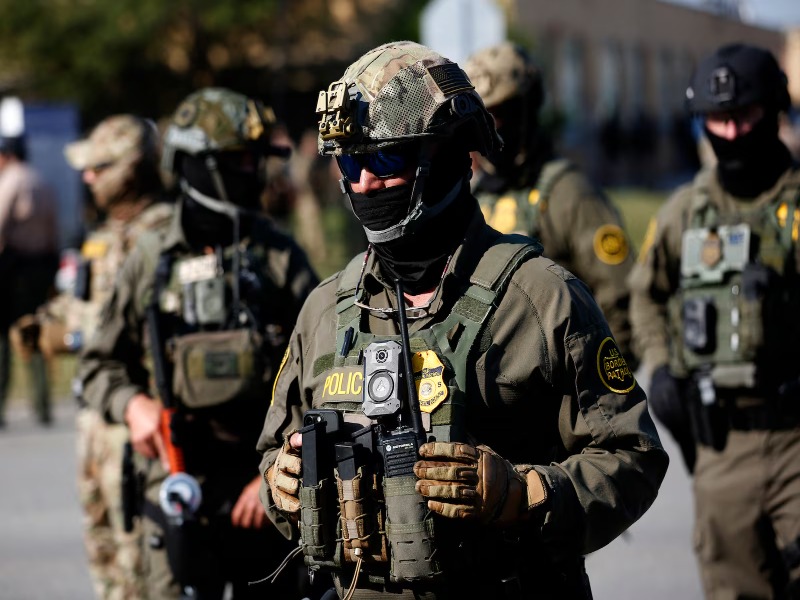
There has been a rise in protests over immigration enforcement in Chicago, most of which have occurred outside US Immigration and Customs Enforcement offices.
White House spokeswoman Abigail Jackson said, “Amidst ongoing violent riots and lawlessness, local leaders like [Gov] Pritzker have refused to step in to quell, President Trump has authorized 300 national guardsmen to protect federal officers and assets.”
She further adds, “President Trump will not turn a blind eye to the lawlessness plaguing American cities.”
The Department of Homeland Security (DHS) said in a statement that about a day prior to Trump ordering troops on Saturday, U.S. Border Patrol personnel fired at a woman in Chicago when a crowd of individuals broke into cars with the intention of attacking immigration enforcement vehicles. The statement claimed that the woman was armed.
The wounds on the woman were ambiguous; DHS reported that she drove herself to a local hospital.
The President had earlier this week discussed his current military deployments to US cities when he was meeting with senior leaders in the military.
He informed military leaders that he desires American cities to serve as “training grounds” for the US troops so they can fight the “enemy from within” their own country and suppress unrest.
He asserted to the Democratic-led cities, including Chicago, and told the military leaders it would be “a major part for some of the people in this room.”
Trump has indicated that he is planning to send forces to Chicago in almost a month, citing crime and shootings in the city.
There has been a steep decline in violent crime in Chicago in the last two years. The Council on Criminal Justice reports that the homicide rate between January and June was a third lower than the same period in 2008.
Yet the general rates in Chicago are considerably greater than the average of most cities in the United States. The Labor Day holiday weekend last month saw at least 58 people shot – eight of them dead.


